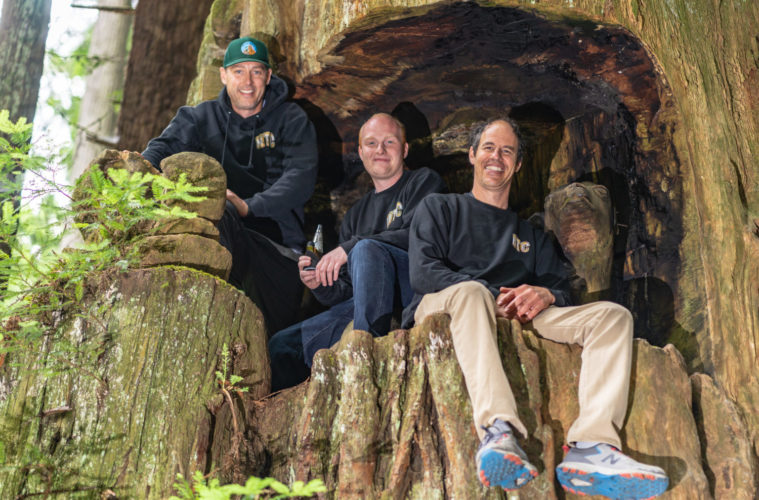In honor of the globbiest day of the year, we sat down with the world champions of dabs, Humboldt Terp Council and Kalya Extracts.
Few have ever reached the peaks these companies have achieved, and it was never accomplished in the legal marketplace. The pair have simply dominated in recent history with HTC finding its way to the top of the Emerald Cup’s coveted BHO podium the last three years. Kalya has ranked top dog in the solventless hash division’s rosin category the past two.
So as the accolades clearly show, when talking elite hash of the moment, they undoubtedly have some of the best insight to offer.
We split our time between the respective worlds of solventless and BHO to not show any favoritism, and we’ll do the same in these features on the pair to carry over the ethos! But in the end, extractors face many similar challenges getting to shelves regardless of whether they’re making bubble hash or have the newest BHO tech.
Humboldt Terp Council
When we last spoke with Robert Gale, he was a back-to-back world champ who just signed a deal to take HTC to the next level with Cannacraft’s Kind House distribution arm. In the time since, HTC achieved the threepeat and the sky is the limit. But before HTC could take home its third cup, the team had to weather the pandemic in the hills of Humboldt County.
“It’s funny, the biggest challenge in the pandemic for us was probably ironically unrelated to the pandemic,” Gale told L.A. Weekly.
In their attempt to get to as many shelves as possible, HTC made the distributor switch early in the pandemic. It would prove their biggest hiccup, but on a positive note, the isolation of Humboldt allowed them to keep up with their craft as the world outside pushed the pause button. 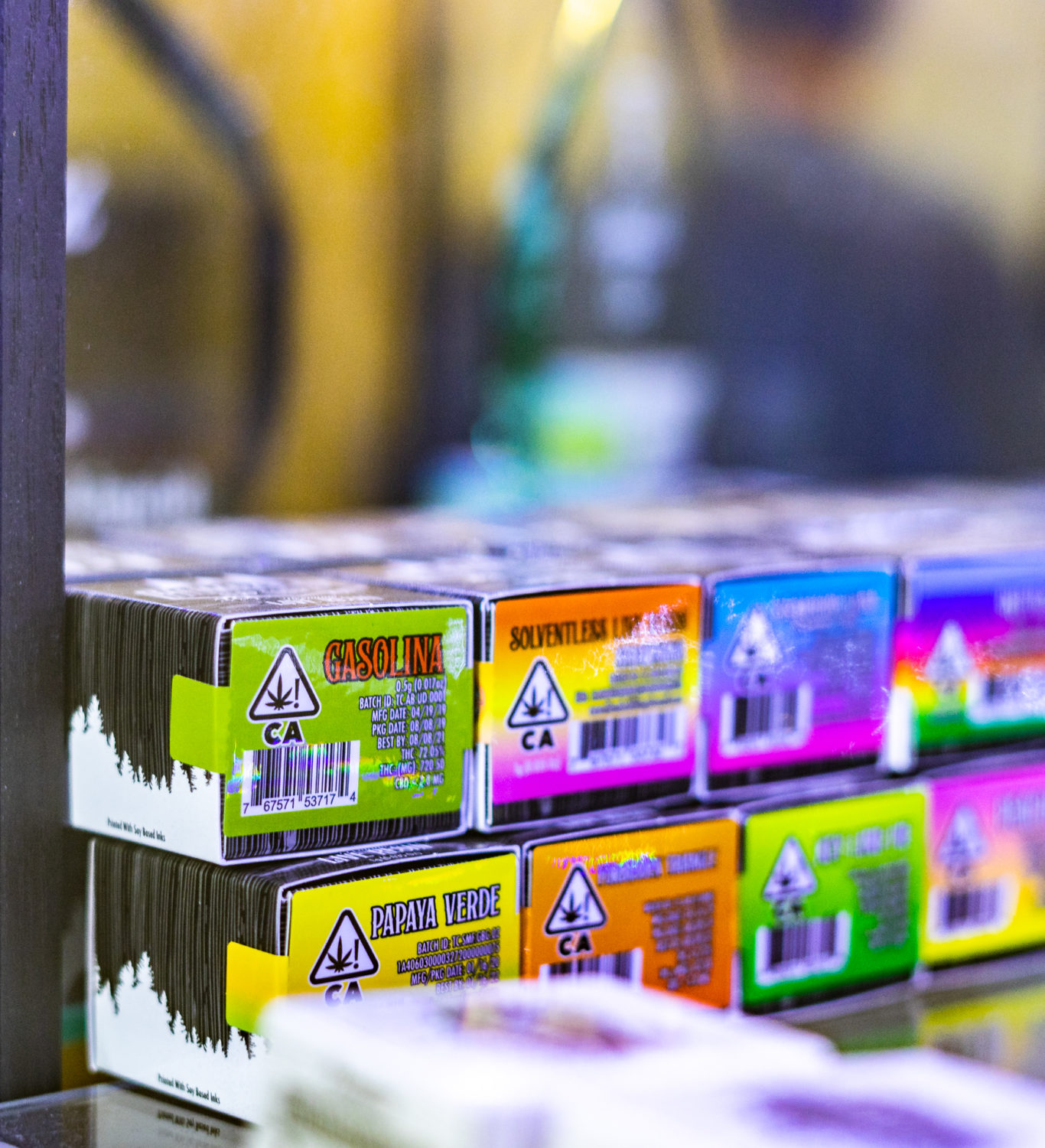
“We pretty much worked the whole time,” Gale said. “It seems like sales kind of went up and down based on stimulus checks that got sent out, and we spent a lot of time going out just doing a lot of stuff ourselves. We did try and tighten our belts a little bit by doing jobs that we didn’t normally always do.”
Many brands struggled to keep in touch with the consumer base during the pandemic because they sell mids – HTC had the opposite experience. People stuck in the house, on a quest to get as high as possible, demanded their products. This NorCal demand has also made wider entry into the L.A. market a bit trickier. At this point, jars of HTC that do make it to SoCal’s most boutique shops evaporate on arrival. But you can expect more in the future.
“You know we’re not very strong yet in Los Angeles and the reason is that after we made our switch from Herbl to Kind House, the sales really increased,” Gale said. “They were servicing the existing accounts with a little bit more flexibly and they were getting us into some new accounts, and to the point, we haven’t given them the inventory yet to expand to L.A., but we’re working on it.”
One thing that didn’t help last year was a shortage in the quality of the material. Many farms that have helped people find their way to cup podiums over the years were severely impacted by fire and smoke. And even if the farm was not directly at ground zero of the infernos, weeks of blackened skies made it hard for many gardens to reach their full potential.
When it comes to making hash, the maximum potential is the baseline. And from there you cross your fingers and hope it yields. And since everything that HTC runs tends to be from the mountaintop, every farm that was hit by smoke meant fewer potential options.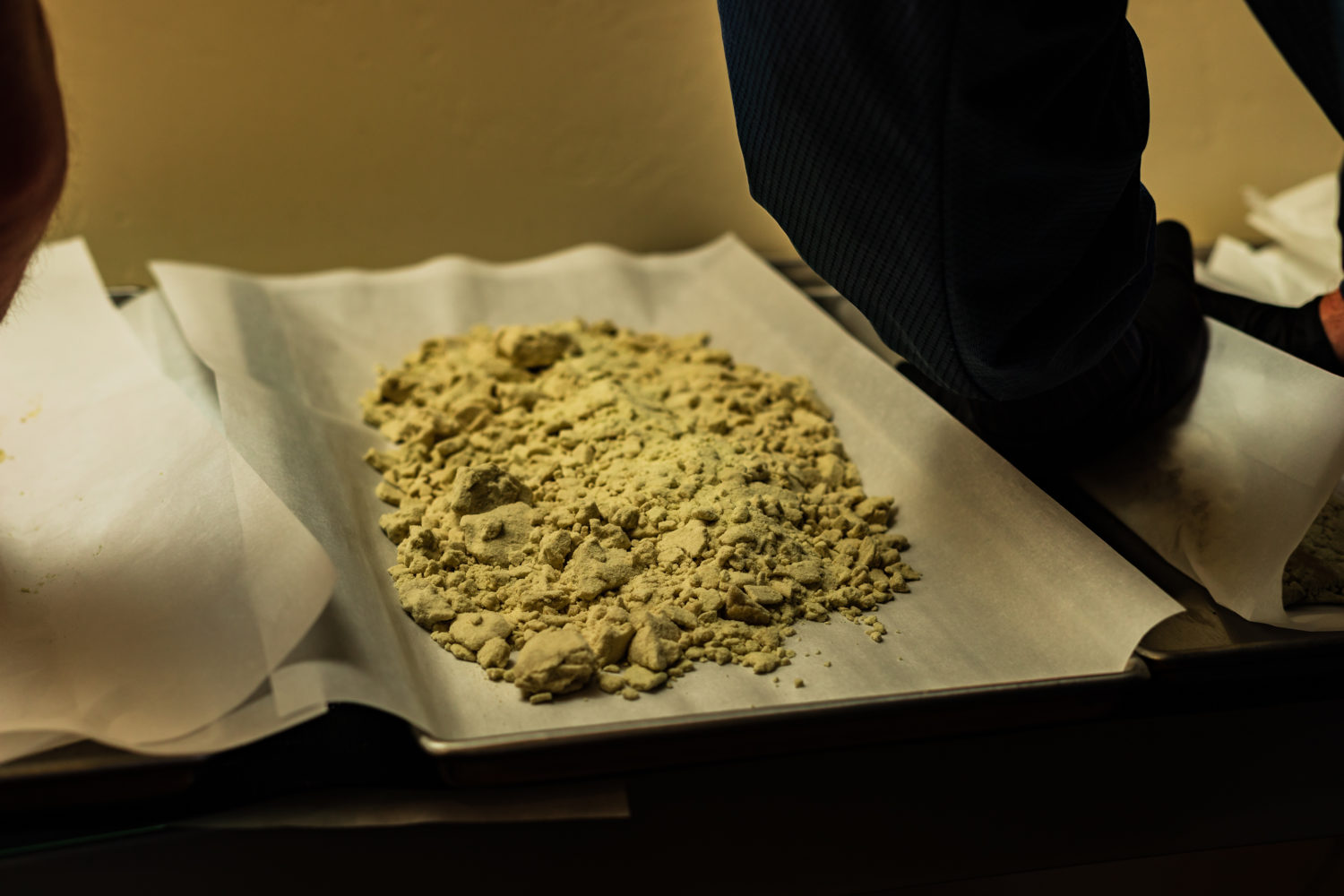
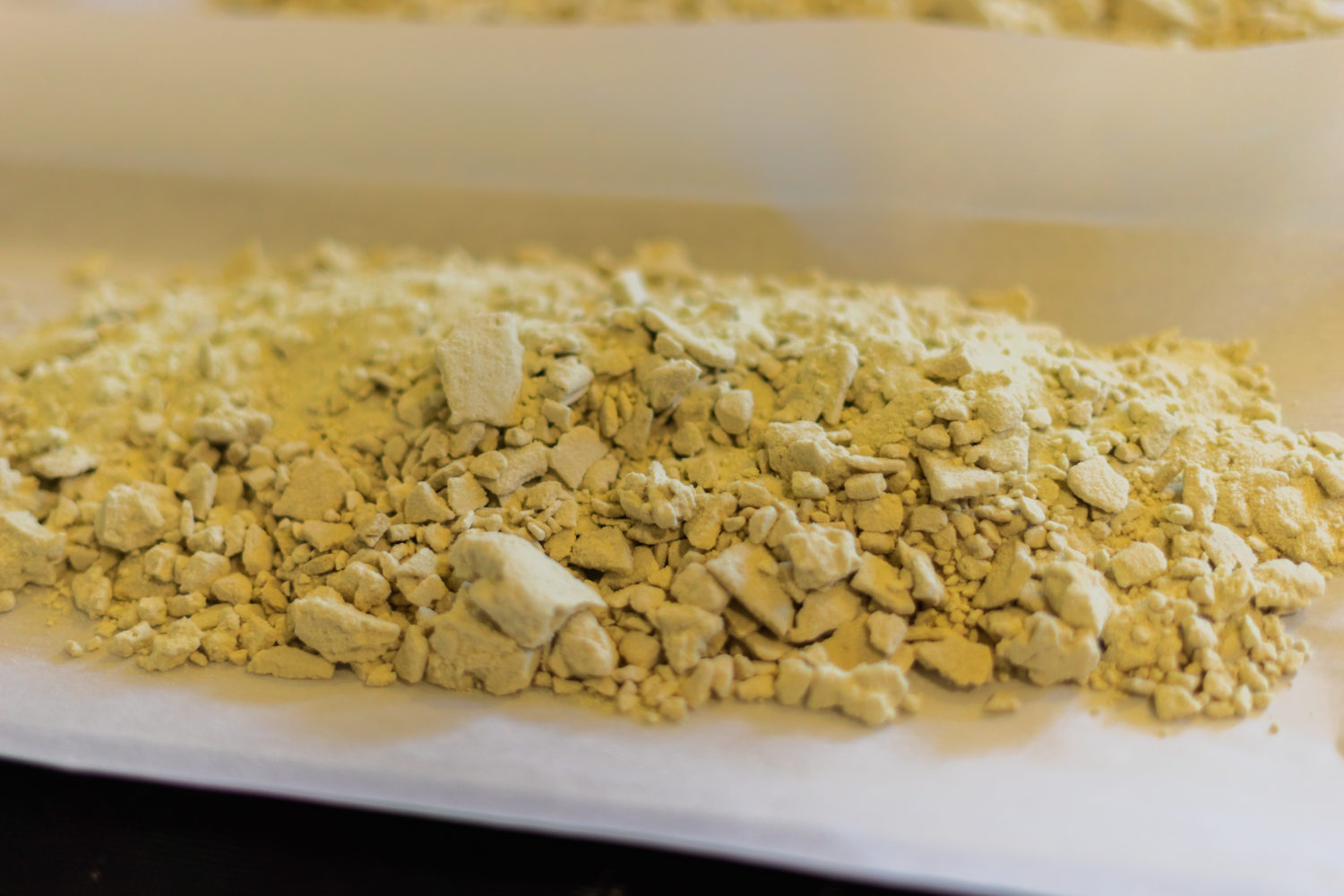
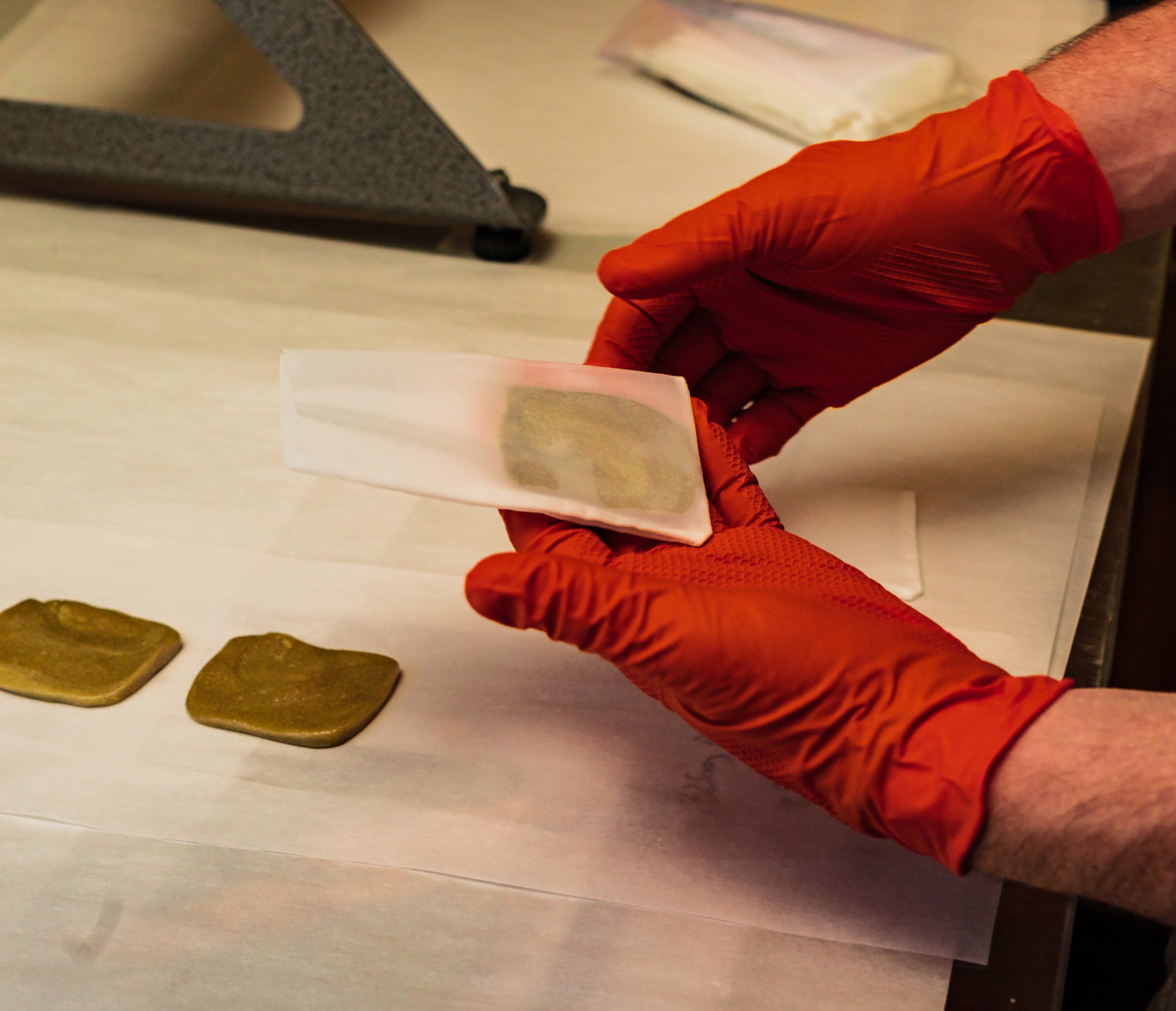
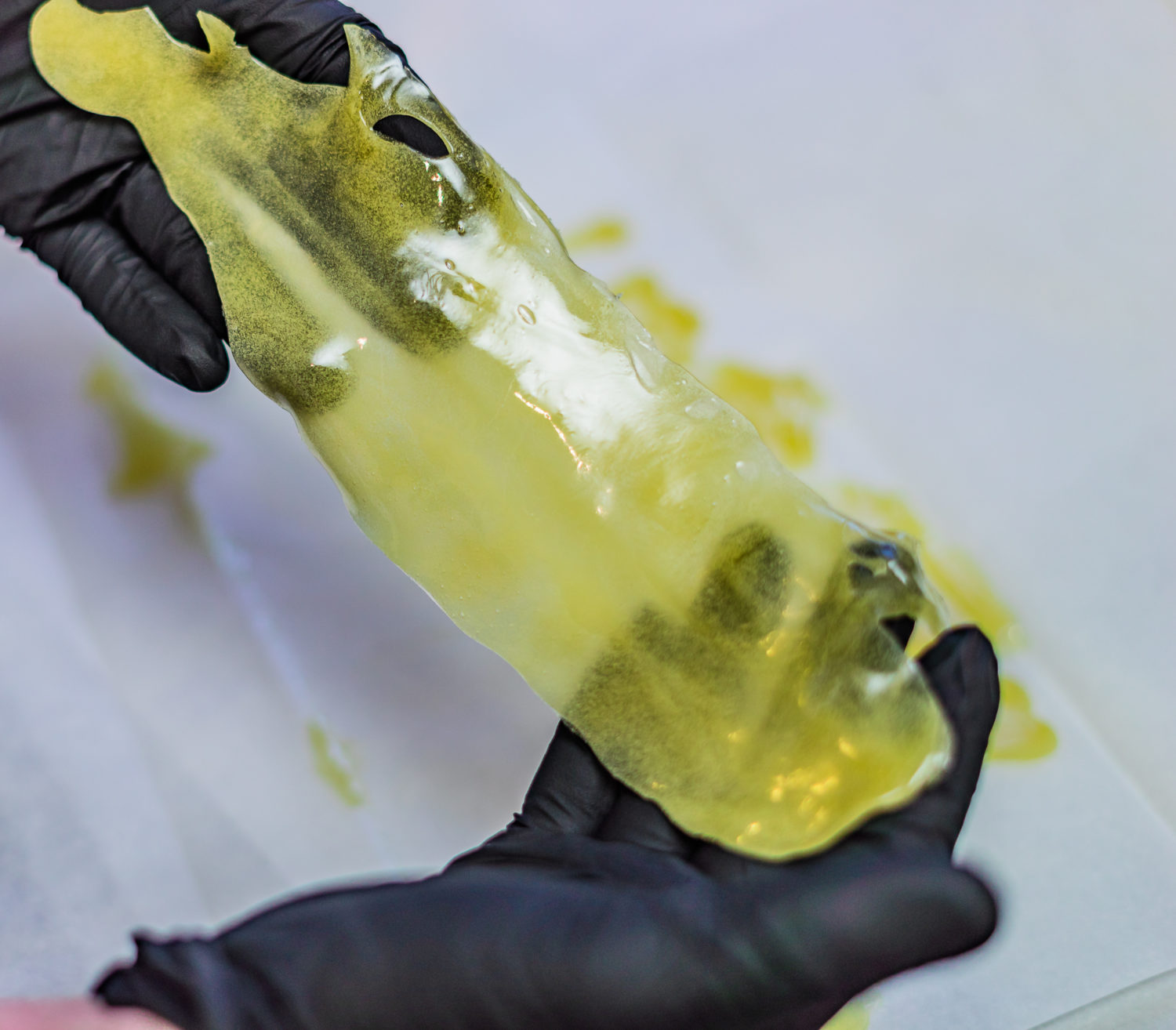
“We had to kind of tiptoe through the winter months, trying to cherry-pick the best of the material that was left out there,” Gale said. “The sales have really increased with Kind House, so our focus now is getting more product out, but also maintaining the same quality.”
Gale argued they’ve done that with some really selective equipment upgrades to keep reinvesting in processes, allowing them to maintain a quality still second to none as they scale up.
“But it was wild, we went from criminal to essential and one pandemic,” Gale said.
Gale’s partner Marcus Ziehm founded HTC before the pair linked up during the implementation of Prop. 64. He offered his take on helping operate HTC through the pandemic.
“When you win a world championship, other champions take notice. It opened a lot of doors and gained us respect,” Ziehm told L.A. Weekly. “Also, in a virtual setting and during a pandemic, the only option the customer has is to seek the winner out at the dispensary. So the cup was instrumental in cutting through the crap and letting the consumer know what is what and who is growing quality peer-accepted cannabis and hash. I had an uncountable number of messages asking where to find the Gelonade that won the cup. It also shined a light on amazing farms and people that play in the background most of the time.”
Now deep into the first wave of light deprivation grown harvests for 2021, where growers use tarps or advanced greenhouses to regulate natural sunlight to finish flowers faster, Gale and his competitors are hot on the trail of the new material that they haven’t already claimed first dibs on. And more frequently than not, they’re keeping their cards as close to their chest as possible after they identify a new farmer who meets the high bar of the best hash. 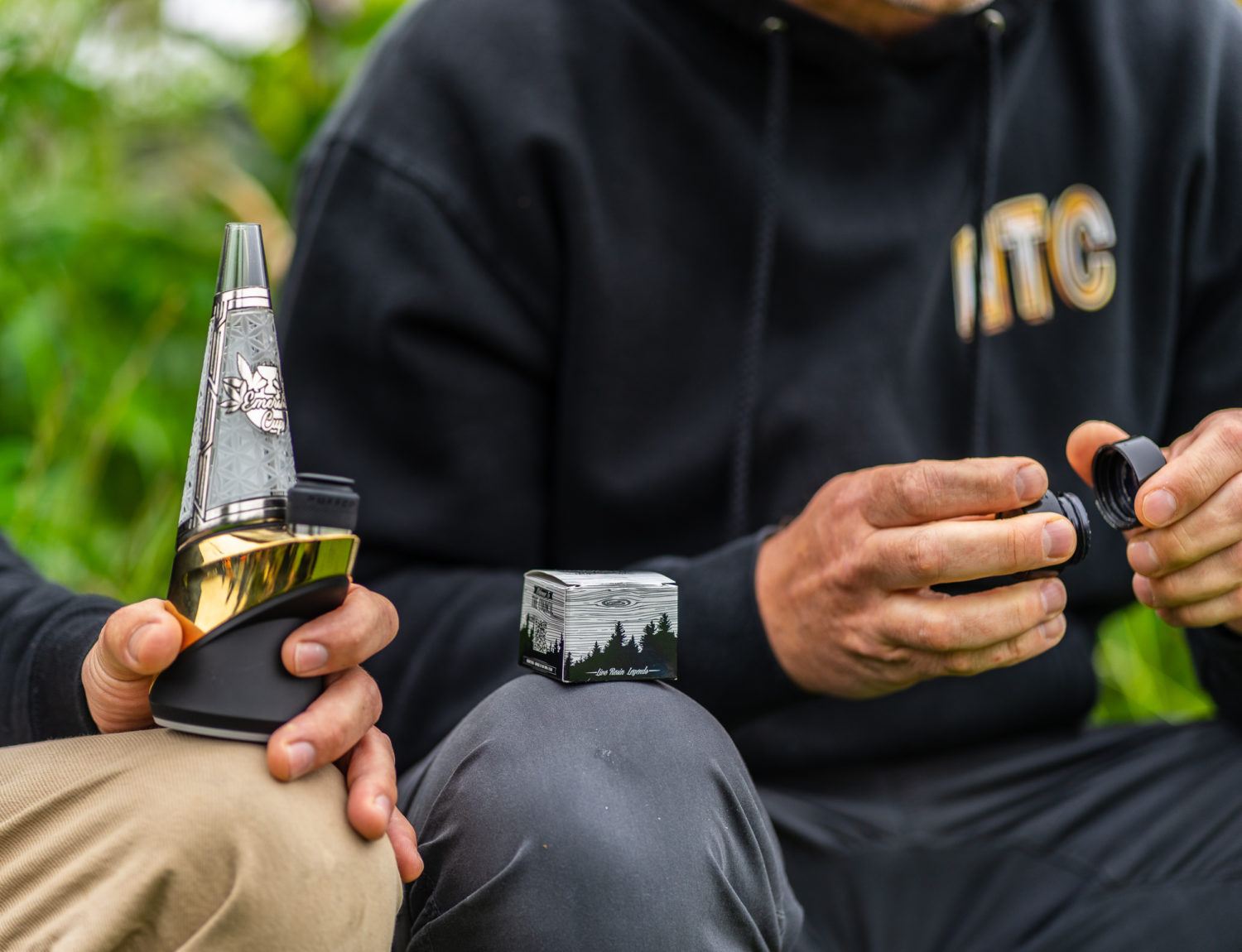
We asked Gale for the Humboldt County Dep Report.
“You know it’s poppin,” Gale excitedly replied. “It’s getting hot now. But I think we had a nice cool and unfortunately dry spring which gets people out to a really good start. I mean, not great for the earth not to have that much rain, but it’s good for the deps. Then the other thing that is catching up here in Humboldt is more people are getting the latest systems in controlled greenhouses.”
The combination of weather, tech and the skillsets of the Emerald Triangle’s locals means great things for hash enthusiasts across California this summer.
“We are seeing some extreme quality out of the first season dep. We got some people’s winter runs, sometimes the flowers are a little smaller. Yields can be a little lower, but the Terps are still there because of the cooler weather,” Gale said. “But man, Humboldt is definitely on it with these spring deps. The stuff we’re seeing is top-notch.”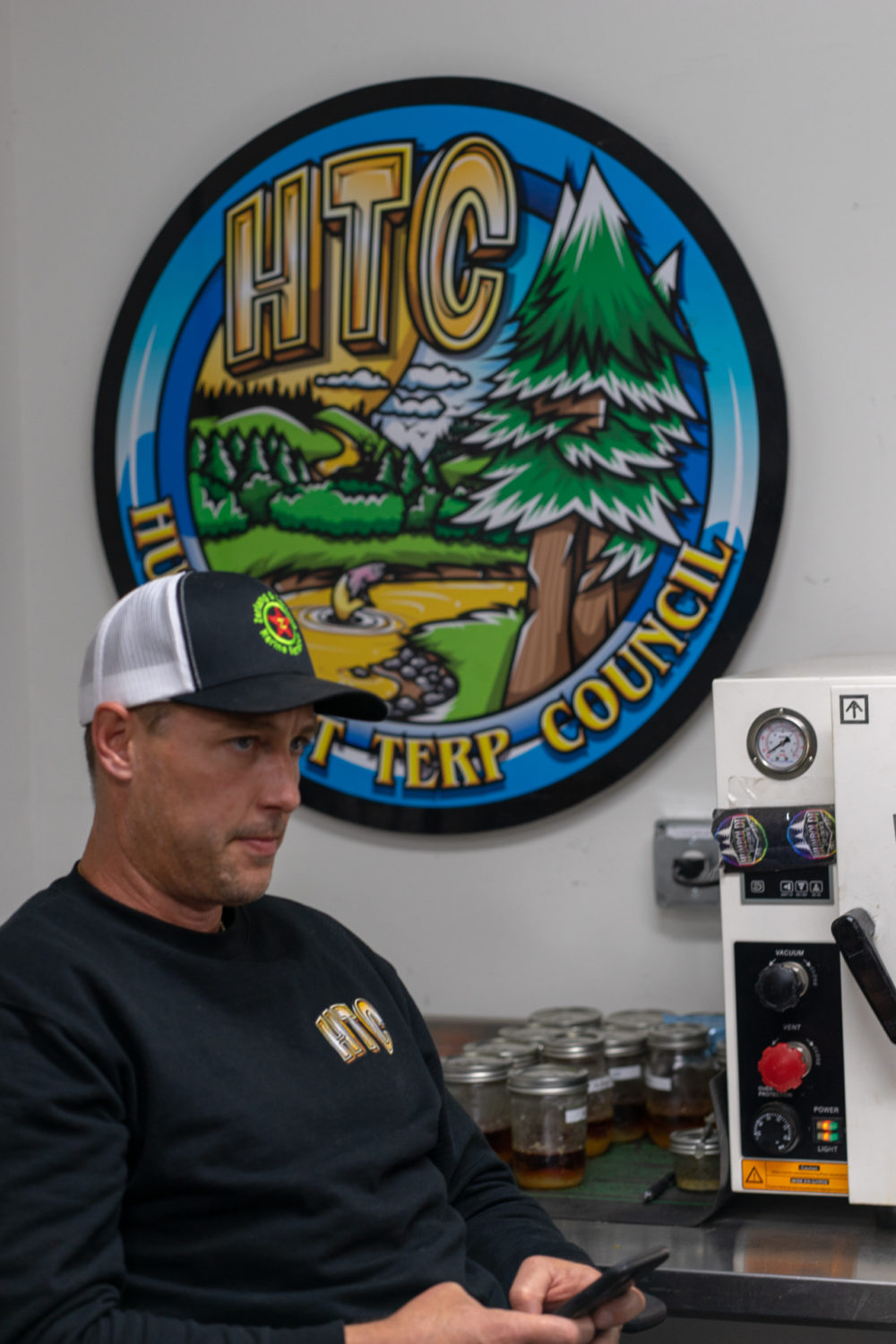
We asked Gale if more people are going harder early in the year in an attempt to beat the fires that have devastated the region annually over the last five years.
“That’s on everyone’s mind,” Gale replied. “You have to be in there early. The fires unequivocally damage the flowers – at least the smell and flavor. It’s almost worse for the extracts than the dry flower, especially butane extract. The smoke is kind of an oily terpene and we’ve also learned from the wine industry that plants can actually take the smoke into their stemmata and be exuding it from the inside out. So it’s a real thing. It’s the fires. There’s already one out by Mount Shasta right now. The wind is blowing north so we’re not getting the smoke, but it’s sobering.”
But with the scale-up in early production, does that mean HTC has access to more material up to their standard than the early runs of years past? Gale would say yes. A big part of it is more and more people that have been growing cannabis for a while getting more and more comfortable with the idea of freezing their crop immediately at harvest for extractors to work with. 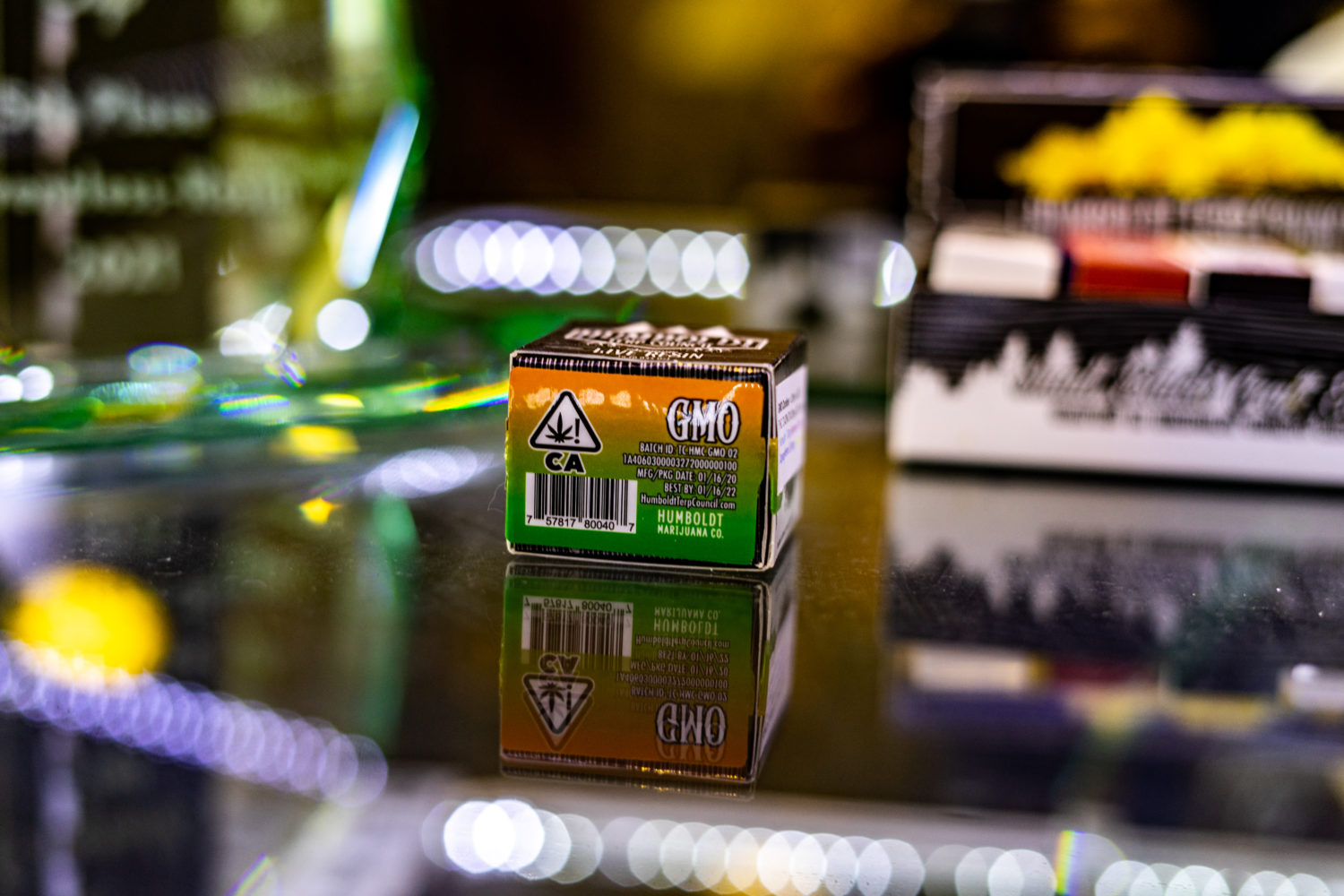
“I would say that it’s always competitive for the top-notch stuff, but more farms are freezing than ever. So that’s kind of balancing in that way. A lot of people are going solventless too, which, you know, that’s kind of like the 1%,” Gale said. “The solventless thing is getting more competitive. More brands are switching to solventless, more people are coming into the game doing solventless. We’re fortunate we have a network of loyal farms and longtime friends being here on the ground and it looks good for the council. The material is fantastic.”
Since Gale is one of the folks operating in both sides of the extract market, we asked whether BHO or solventless is a more competitive space.
“The solventless is tougher as far as there are more high-end products out there. BHO is tough to offer a high-end product. The profit margins are really small if you’re not single source,” Gale replied.
Single source means you’re producing the flower you use to make the hash yourself. Gale admits that even being the three-time world champs doesn’t matter when you’re not single-sourced because the margins are a lot lower, the material isn’t going to pay for itself in honor of your noteworthy trophy shelf.
“We kind of found a unique niche,” Gale said of HTC’s price point floating above the other BHO options but still a bit cheaper than solventless. “It’s not super profitable but we’re staying on shelves and people are really really happy. That’s what means the most to us. It would be an understatement to say it’s tough to make money in this business at our size, but we do make people happy and it does feel good.”
Gale went on to dive into some of the farms the HTC crew loves working with based on the results of the finished product. He said they really love working with Emerald Queen Farms, but it’s getting more and more difficult because they’re getting so popular with his competition. But he has a few tricks up his sleeve yet.
“We’re really excited. We have a new female-owned farm. I’m afraid to give you the name if you publish it because then other people hit her up,” Gale said. “We’re running a bunch of her material. She’s someone I’ve known for decades, but just recently tapped in on this angle.”
Now that things are looking good at the moment, is there any focus for them on stocking up on material in the event of a worst-case scenario returning to Northern California later this fall?
“It’s a moving target,” Gale told us. “We’ve been kind of a small, funded by the shoestrings, operation and you know we’re hoping that working with Cannacraft and Kind House will give us a little more buying power upfront with some of the farms and we have some freezers here on the coast we can store their material, safely, securely and frozen solid.”
More often than not, the average consumer can’t comprehend how essential a quick quality freeze is to get the best hash possible.
“A lot of farmers want to go to fresh frozen. But now you got to freeze it and you know it’s a lot of infrastructure,” Gale said. “One of the things we’re trying to add for the HTC team is a freezer truck. That’s high on our list.”
But Gale admits freezer trucks drop like flies in the hills and extreme heat of Humboldt. So with new tools come new challenges. But regardless, many of the farms they work with are off the grid or have limited power options. The truck is going to help a lot.
We asked Gale what kind of material gets him the most excited to work with these days?
“I kind of grew up in the OG, and then the Cookie era. I’m a big fan of really gassy OG stuff,” Gale replied. “We just released a La Mamba that crushes on that. Also, that Gelonade jumped out at me. I love that. That lemon rinds smell from Lemon Tree. That’s why I love this Lemon Royale. It’s a Lemon Tree cross just like the Gelonade and we’ve been able to really capture that one. I’m getting on over to the orange side again. I got a little burnt out I think on the whole Tangie world but this Mimosa world that Symbiotic Genetics has brought out is kind of weening me back over to the orange. Stuff like the Strawberry Jelly the M3. I love Skittles. We haven’t come across a good washer but we’re really good with that one with butane. We’re pretty well known for that.”
Gale closed by giving kudos to fellow small business owners in the cannabis industry who have survived its hurdles up to this point.
“Hats off and much love to all the small businesses that are still here and really trying to do things for the plants,” Gale said. “Pour one out for the folks that weren’t able to make the transition. It’s really changed a lot of lives and it’s really changed Humboldt County. I hope we see a future that’s a little less taxed, making cannabis and medicine a little more accessible.”
Advertising disclosure: We may receive compensation for some of the links in our stories. Thank you for supporting LA Weekly and our advertisers.

